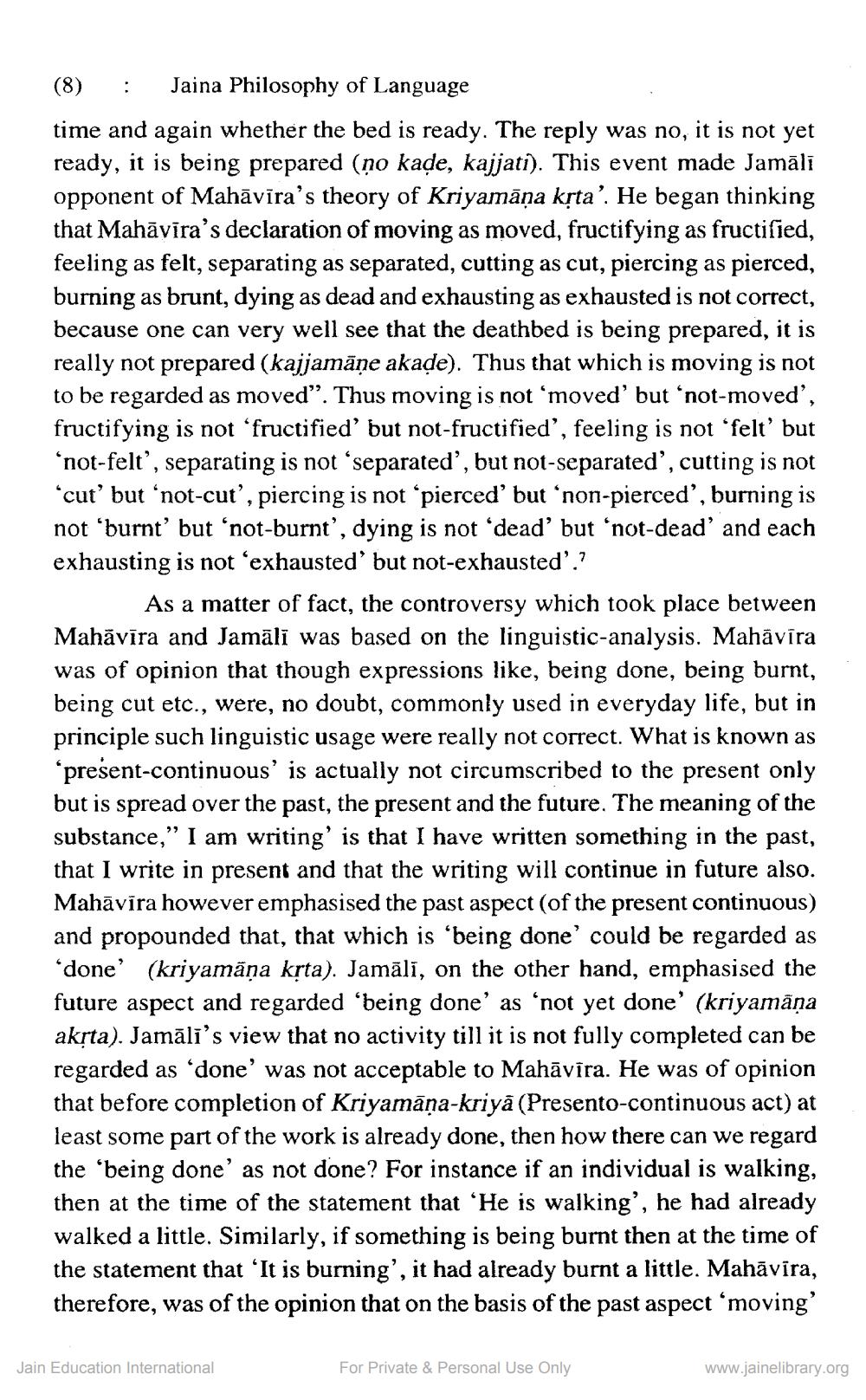________________
(8) : Jaina Philosophy of Language time and again whether the bed is ready. The reply was no, it is not yet ready, it is being prepared (ņo kade, kajjati). This event made Jamāli opponent of Mahāvīra's theory of Kriyamāṇa kṛta' He began thinking that Mahāvīra's declaration of moving as moved, fructifying as fructisied, feeling as felt, separating as separated, cutting as cut, piercing as pierced, burning as brunt, dying as dead and exhausting as exhausted is not correct, because one can very well see that the deathbed is being prepared, it is really not prepared (kajjamāne akade). Thus that which is moving is not to be regarded as moved". Thus moving is not ‘moved' but ‘not-moved', fructifying is not ‘fructified' but not-fructified', feeling is not 'felt' but ‘not-felt', separating is not ‘separated', but not-separated', cutting is not “cut' but ‘not-cut', piercing is not 'pierced' but ‘non-pierced', burning is not 'burnt' but ‘not-burnt', dying is not dead' but ‘not-dead' and each exhausting is not exhausted' but not-exhausted'.?
As a matter of fact, the controversy which took place between Mahāvīra and Jamāli was based on the linguistic-analysis. Mahāvīra was of opinion that though expressions like, being done, being burnt, being cut etc., were, no doubt, commonly used in everyday life, but in principle such linguistic usage were really not correct. What is known as “present-continuous' is actually not circumscribed to the present only but is spread over the past, the present and the future. The meaning of the substance," I am writing' is that I have written something in the past, that I write in present and that the writing will continue in future also. Mahāvīra however emphasised the past aspect (of the present continuous) and propounded that, that which is being done could be regarded as done' (kriyamāṇa kṛta). Jamālī, on the other hand, emphasised the future aspect and regarded 'being done' as 'not yet done' (kriyamāņa akrta). Jamāli's view that no activity till it is not fully completed can be regarded as ‘done' was not acceptable to Mahāvīra. He was of opinion that before completion of Kriyamāņa-kriya (Presento-continuous act) at least some part of the work is already done, then how there can we regard the 'being done' as not done? For instance if an individual is walking, then at the time of the statement that 'He is walking', he had already walked a little. Similarly, if something is being burnt then at the time of the statement that 'It is burning', it had already burnt a little. Mahāvīra, therefore, was of the opinion that on the basis of the past aspect ‘moving'
Jain Education International
For Private & Personal Use Only
www.jainelibrary.org




